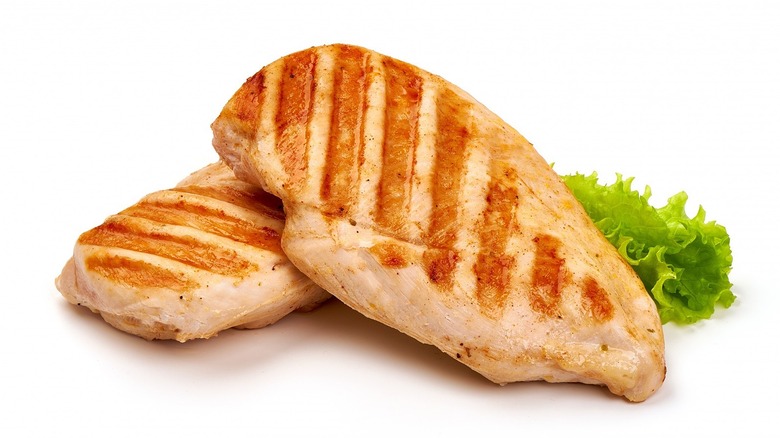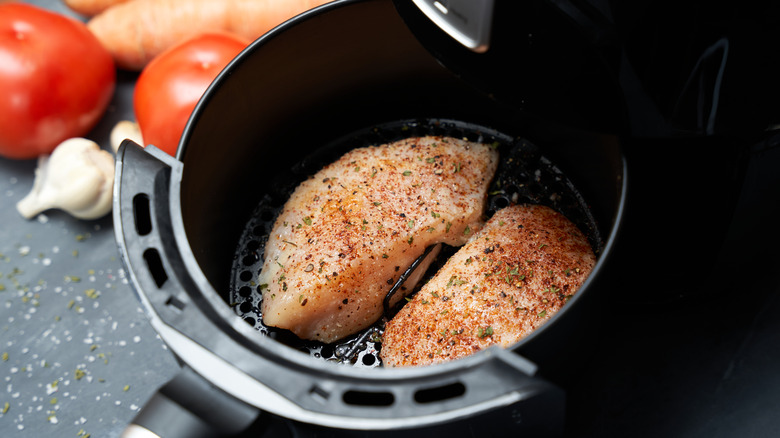Why Your Chicken Breasts Might Look Different Than Usual
If you purchased and cooked chicken breasts recently, you may have noticed something a little off or unusual. Maybe the raw chicken breast looked a little striped (and not the normal, white striping you're used to seeing on chicken breasts), but you thought it was fine or no big deal, so you cooked it anyway. Then, your cooked chicken breast ended up all tough, with weird, almost fiber-like portions throughout. You may have just come across a woody chicken breast.
Woody chicken breasts are a relatively new phenomenon, Dr. Casey Owens, a professor of poultry science, recently told TODAY. The breasts with a weird, undesirable texture have only been popping up in the last eight years or so, making information about them scarce. Owens' research shows that the change in texture stems from chicken muscle development. If birds are being forced to grow abnormally fast and are under a lot of stress, their protein composition changes. This might lead to woody chicken breasts. Based on these facts, it's no surprise that woody breasts are more common in commercially-raised chickens that are raised in ways that maximize peak profitability.
What to do about woody chicken breasts
No one wants to eat a woody chicken breast. If you've come across one before, you know the breasts are tough and just plain unpleasant to eat, even difficult to cut. The only good news is, according to the National Chicken Council, while woody chicken breasts are tough and not-so-tasty, they pose no health threat and offer the same nutritional value as any other chicken breast. However, to avoid buying woody chicken breasts, TODAY recommended buying organic chicken breasts, looking for smaller chicken breasts, avoiding breasts with any discoloration, and giving the chicken a squeeze. If certain pieces feel firmer than others in the poultry case, it could be a sign of that woody texture.
But what do you do if you've already purchased your chicken and you've realized only too late that you have some woody breasts on your hands? You're not forced to throw the chicken out, thankfully. Look for an enzyme-heavy marinade that can help tenderize the meat before cooking, per TODAY. You can also use the chicken breasts in a recipe that doesn't require it to retain much texture, such as in chicken breast recipes that call for shredded, ground, or diced chicken.

